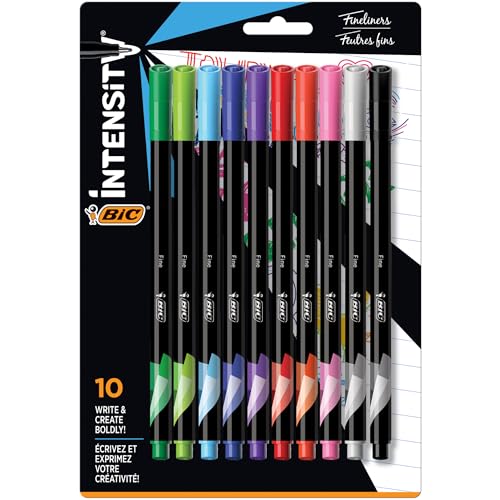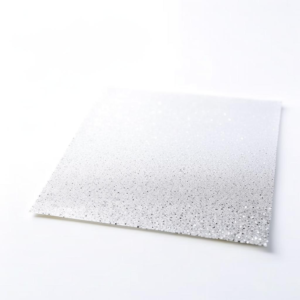Are you a fan of Bic pens and would like to know if they’re safe and non-toxic? I’ve put together this guide to answer all the questions about the safety of these super convenient and budget-friendly pens.
We’ll cover their materials and certifications, as well as research that’s been done to assess their toxicity. Plus, I’ll look into any potential risks associated with Bic pens and give some tips for safe use. Ready? Let’s go!
The benefits of using non-toxic pens
Using non-toxic pens has many benefits.
From reducing exposure to toxic chemicals to eliminating the risk of respiratory and skin irritation.
They are especially beneficial for those with asthma or allergies.
Non-toxic pens are made without hazardous chemicals such as benzene and xylene, which are present in some traditional pens.
These ingredients can cause adverse reactions in humans.
So using non-toxic writing tools is the right thing to do for your health and safety.
Are Bic pens non-toxic?
Bic pens are basically made of three main parts: plastic, ink, and metal.
Plastic is used to shape the body of the pen.
Metal is used for the ballpoint tips and springs in retractable pens.
And the ink is what lets pens draw or write.
Of course, when talking about the safety and non-toxicity of Bic pens, the ink is the most important component.
Are Bic pen inks non-toxic?
The ink used for Bic’s ballpoint pens is made of a dye dissolved in an oil-based paste.
This allows for a smooth, consistent writing experience with crisp lines.
Bic’s gel ink is instead water-based and colored using powder pigments.
This gives it a bold, vibrant look.
According to Bic, both inks are non-toxic and safe for their intended use.
Bic is committed to ensuring the safety of their products.
So the company has made sure that their inks meet stringent standards.
Safety certifications for Bic pens
Bic pens are subject to various regulations, and the company has taken several steps to ensure that their products are safe for consumers to use.
ACMI
One such certification that Bic pens have received is from the Art and Creative Materials Institute (ACMI).
The ACMI is a nonprofit association of art and craft materials manufacturers that evaluates products for their safety and compliance with regulatory standards.
The ACMI conducts rigorous testing of art materials to ensure that they are non-toxic and not dangerous for their intended use.
Products that meet ACMI standards are given the AP (Approved Product) label, which is widely recognized as an assurance of quality and safety.
Bic pens and markers have been certified as non-toxic and compliant with the ASTM D-4236 standard by the ACMI.
ASTM D-4236 is a standard practice for labeling art materials for chronic health hazards. It provides guidelines for manufacturers to follow to ensure the safety of their products.
It’s designed to ensure that all products used in art and craft are not dangerous for their intended use and will not cause harm to users or the environment.
The standard also details labeling requirements that must be followed to make consumers aware of any potential hazards associated with the product.
EU
In addition to the ACMI certification, Bic pens are also compliant with the European Union’s EN71-3 standard.
This standard is also known as the Toy Safety Directive.
It’s a set of rules and guidelines that are applied to all toys. Including children’s art supplies, manufactured and sold within the European Union.
The EN71-3 standard is designed to ensure that all toys and children’s products, regardless of their manufacturer or country of origin, meet a set of criteria for safety.
This includes items such as hazardous substances and materials, flammability, physical and mechanical aspects, electrical safety. And other safety and health related standards.
The EN71-3 standard is regularly reviewed and revised to ensure that it remains up-to-date and comprehensive in order to ensure the safety of all products sold within the EU.
Overall, Bic pens have received various certifications that attest to their compliance with regulatory standards.
These certifications are an important factor in assessing the safety of Bic pens, and they should provide peace of mind to consumers when using them.
Are Bic pens safe for use by children?
Bic pens are considered safe for use by children.
However, there are some precautionary measures that should be taken when allowing young children to use them.
The products are designed for adults and may contain small parts that could be a choking hazard for young children.
It is important to always supervise children when they are using pens and other writing tools. Also, always make sure that the pen has all of its parts securely attached.
The ink used in Bic pens is non-toxic, so it’s safe if a child happens to get it on their skin.
Just make sure your kid doesn’t chew on the pen and ingest ink.
By the way, to conform to international safety standards, Bic manufactures pens and pen caps with a small hole to prevent accidental choking.
This is an important and life-saving feature, as a small child or pet may inadvertently swallow the cap and become choked.
The hole is designed to allow air to pass through, reducing the risk of suffocation.
This hole also prevents a vacuum from forming and makes it easier to remove the cap.
That’s why Bic pens are a safe writing tool for both adults and children.
Is it safe to ingest Bic inks?
If you chew on a pen, the amount you can ingest will be minimal.
Although there is no scientific evidence that small amounts of Bic ink are dangerous, it’s still not a good idea. After all, the ink contains chemical dyes.
Any dye can be toxic if ingested in large amounts. So you may get an upset stomach.
That’s why it’s best to avoid chewing on pens or ingesting Bic ink in any form.
In addition to that, avoid getting the ink into your eyes or on any sores, broken, or irritated skin.
To prevent any accidents, it’s also important to keep pens out of reach of children and stored securely.
Plus, any writing tool is always a choking hazard for small kids.
Are Bic pens non-toxic for tattoos?
Bic pens are also sometimes used for a type of body art known as stick and poke tattoos.
This practice involves using a needle or other sharp object to manually puncture the skin and deposit ink under the surface, creating a tattoo.
While stick and poke tattoos have become increasingly popular in recent years, you need to be aware of the potential risks associated with using Bic pen ink for this purpose.
First, it’s important to note that Bic pens are not designed for use inside human skin. Their ink hasn’t been tested or certified as safe for this purpose.
After all, the ink used in Bic pens is specifically formulated for use on paper or cardstock.
When used for stick and poke tattoos, Bic pen ink can potentially cause a range of serious health problems. Such as skin irritation, allergic reactions, infections, etc.
Additionally, using a needle or other sharp object to manually puncture the skin can increase the risk of injury, bleeding, and scarring. Especially if you don’t follow proper sterilization procedures.
To minimize these risks, use specially formulated tattoo ink for stick and poke tattoos. This kind of ink is always tested and certified as safe for use on human skin.
These inks are typically available from professional tattoo supply shops and large reputable sellers like Amazon. They are designed to be sterile and free from potentially harmful substances.
Are Bic pens non-toxic for temporary tattoos?
While it’s not recommended to use Bic pens for permanent tattoos, you can use Bic products for temporary tattoos.
Bic has even released a line of products called Bic BodyMark temporary tattoo markers.
These markers are specifically formulated for use on the skin and are designed to be safe, easy to use, and long-lasting.
Bic BodyMark markers are available in a variety of colors.
The temporary tattoos made them can last for a couple of days, depending on your skin type and the location of the tattoo.
You can use these markers to create fun designs for special events, parties, or other occasions.
Bic BodyMark markers have also undergone safety testing and have been certified as non-toxic and skin-safe, according to Bic.
This certification ensures that the ink used in Bic BodyMark markers does not contain any hazardous materials that could cause harm to the user.
While Bic BodyMark markers are generally OK for use on the skin, there are still some risks and precautions to be aware of.
Avoid using these markers on broken or irritated skin, as this can increase the risk of infection or other health problems.
Plus, don’t apply the ink too close to the eyes, mouth, or other sensitive areas of the body.
To minimize the risk of skin irritation or other health problems, test your marker on a small patch of skin before applying them to a larger area.
This can help to identify any potential allergies or sensitivities to the ink.
To remove your BodyMark temporary tattoo, simply lather the ink area with soap and rinse with water.
This will allow you to remove the design quickly and easily, and without any pain or skin damage.
So overall, Bic pens are generally safe for their intended use, with non-toxic ink and compliance with safety standards set by various regulatory agencies.
However, you still need to be aware of potential risks associated with Bic pens, such as choking hazards and risks associated with ingesting ink or making stick and poke tattoos with it.










